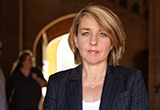 The first day of ISDMISEHC is over and synthesising the issues from the Twitter feed and presentations today is quite a challenge. Given that 300 people are exchanging ideas and experiences from all over the world we really want to share this with a wider audience. In addition, our conference delegates are struggling with trying to jump between so many outstanding sessions throughout the day. So here are a few of my own reflections.
The first day of ISDMISEHC is over and synthesising the issues from the Twitter feed and presentations today is quite a challenge. Given that 300 people are exchanging ideas and experiences from all over the world we really want to share this with a wider audience. In addition, our conference delegates are struggling with trying to jump between so many outstanding sessions throughout the day. So here are a few of my own reflections.
Victor Montori from the Mayo Clinic started our meeting with a keynote address highlighting the importance of “context and circumstances” in caring for patients. Being a patient can be hard work and we need to try and ensure that our health teams minimise the burden we impose on them. Kindness and care can be lost in an overstretched work environment and there has been a lot of talk over the past two days about the need to support clinicians better.
I’ve been incredibly impressed today by the pioneering work of colleagues from Asia and South America. New systematic reviews on the efficacy of traditional chinese medicine have filled important gaps in our knowledge-base, while colleagues are also translating and adapting tools and measures for shared decision making (SDM) in other languages and cultural contexts. Many from non-Western countries are asking how they can include families in SDM—an issue that is central to many cultures. On top of this, low and middle country health systems have high patient case-loads, limited access to relevant evidence and only a few minutes with each patient. The concept of being actively involved in health decisions is entirely new to many patients around the world—although most say they would LOVE to have the opportunity to do so. Changing the culture and the power balance in healthcare systems therefore remains a major challenge across the globe and is one of the major barriers to evidence based practice and SDM implementation and optimal patient care.
There was a panel session on patient involvement this afternoon and we heard about The BMJ’s ground-breaking patient partnership program, the impressive work of PCORI as “The People’s Research Institute” in the US, and our health consumers’ perspective that a “partnership” approach facilitates greater equality.
On a personal note, I am thrilled that almost thirty GPs from around the world met this evening and shared teaching tips, differences, and similarities in the way we work and a desire to pool resources on common clinical problems. This could be a game changer!
Lyndal Trevena is Professor of Primary Health Care and Head of the Discipline of General Practice at the University of Sydney. She is Co-Chair of the ISDM-ISEHC Conference in Sydney 19-22 July, 2015.
Competing interests: None declared.
